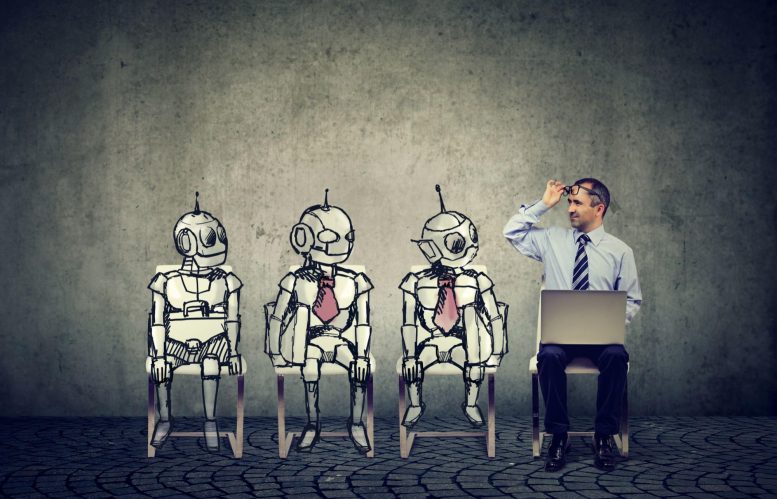
A new study reveals that work experience significantly affects how employees interact with AI. Employees with greater task-specific experience benefit more from AI, whereas senior workers are less likely to trust AI due to concerns over its imperfections. The findings emphasize the need for tailored strategies when integrating AI in the workplace to enhance human-AI teamwork.
New research reveals intricate aspects of human-AI interactions, highlighting a surprising trend: artificial intelligence systems tend to benefit junior employees, but not for the reasons you’d expect.
New research published in the INFORMS journal Management Science offers valuable insights for business leaders regarding the impact of work experience on employee interactions with artificial intelligence.
The study explores the effects of two primary forms of human work experience—narrow experience, which is defined by the volume of specific tasks, and broad experience, characterized by overall seniority—on the dynamics within human-AI teams.
Surprising Findings from a Medical Chart Coding Study
“We developed an AI solution for medical chart coding in a publicly traded company and conducted a field study among the knowledge workers,” says Weiguang Wang of the University of Rochester and leading author of the study. “We were surprised by what we found in the study. The different dimensions of work experience have distinct interactions with AI and play unique roles in human-AI teaming.”
“While one might think that less experienced workers should benefit more from the help of AI, we find the opposite – AI benefits workers with greater task-based experience. At the same time, senior workers, despite their greater experience, gain less from AI than their junior colleagues,” says Guodong (Gordon) Gao of Johns Hopkins Carey Business School, and study co-author.
The Dilemma of Seniority and AI Trust
Further investigation reveals that the relatively lower productivity lift from AI is not a result of seniority per se but rather their higher sensitivity to the imperfection of AI, which lowers their trust in AI.
“This finding presents a dilemma: Employees with greater experience are in a better position to leverage AI for productivity, but the senior employees who assume greater responsibilities and care about the organization tend to shy away from AI because they see the risks of relying on AI’s assistance. As a result, they are not effectively leveraging AI,” says Ritu Agarwal of Johns Hopkins Carey Business School, a co-author of the study.
The researchers urge employers to carefully consider different worker experience types and levels when introducing AI into the work. New workers with less task experience are disadvantaged in leveraging AI. Meanwhile, senior workers with more organizational experience may be concerned about the potential risks imposed by AI. Addressing these unique challenges are key to productive human-AI teaming.
Reference: “Friend or Foe? Teaming Between Artificial Intelligence and Workers with Variation in Experience” by Weiguang Wang, Guodong (Gordon) Gao and Ritu Agarwal, 11 October 2023, Management Science.
DOI: 10.1287/mnsc.2021.00588









The article title “Contrary to Common Belief, Artificial Intelligence Will Not Put You out of Work” is not addressed with a single word in the actual article. People have already been made redundant due to increased efficiency when AI is used. On the other hand, AI also creates new jobs, and the current job market means skilled people can easily find new employment.
The title is very deceptive indeed. The person who posts these needs to find a flashy title to draw readers in and misinterpreted the results. We know people are already being put out of work by AI, as in the case of Art. The corporate excitement around AI draws from the potential to cut labor budgets.